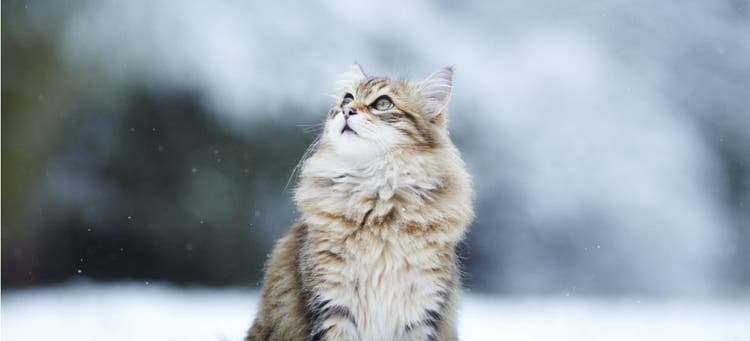
7 Winter Safety Tips for Cats and Dogs
Winter is the perfect time to snuggle up with your pet and share some quality time. But it can also be a dangerous season for cats and dogs, so it’s important to make sure they stay safe and healthy all winter long. In this article, we’ll share 7 winter safety tips to help you keep your pet happy and healthy during the coldest months of the year.
1. Limit Time Outside During Winter
Many of us enjoy taking our pets outside on a crisp winter day to play in the snow or go for a walk. But it’s vital not to overdo it – cats and dogs can’t regulate their body temperatures as well as humans, and staying outside for too long in winter can put them at risk of hypothermia.
When temperatures drop, it’s best to keep walks short and sweet. If your pet starts shivering or showing signs of discomfort (like staying close to you), it’s time to come back inside. Short-haired pets are often more susceptible to cold weather than pets with long, thick coats. So, if you have a short-haired pet, it’s especially important to limit their time outside in winter.
2. Keep Your Pet Warm and Comfortable
Make sure to protect your pet from the elements when you venture outside in winter. Specially designed sweaters and coats are a great choice for pets with short or thin fur. Look for winter gear that’s insulated, waterproof, and windproof to ensure your pet stays warm, dry, and cozy outside.
Since many pets sleep close to the floor, it’s also vital to keep them warm inside the home. A comfortable padded pet bed and thick blanket can provide extra warmth during the winter. This is especially important for pets that suffer from joint problems, as they can worsen in cold weather.
3. Protect Your Pet’s Paws
Snow, ice, and salt can damage your pet’s paws and cause painful symptoms like cracking and bleeding. To prevent this from happening, make sure your pet’s paws are always protected before heading outside in winter.
The best way to protect your pet’s paws is by investing in a pair of winter booties that are specially designed for pets. Booties will not only protect your pet’s paws from salt and snow, but they’ll also provide a barrier between their skin and the cold ground. Paw wax can also be used as a protective barrier and is a good option for pets that have difficulty adjusting to booties.
4. Keep Your Pet Physically Active and Mentally Stimulated
Just like humans, pets need to stay physically active and mentally stimulated throughout the winter. Keeping your pet active will help them maintain a healthy weight and prevent issues like depression, anxiety, and destructive behaviors.
Since it’s often necessary to limit time outside during winter, it’s crucial to provide your pet with plenty of mental and physical stimulation inside the home. Keep your cat or dog active by engaging them in regular play. It’s also a good idea to provide interactive toys and puzzle feeders to keep them mentally sharp and agile. You could even practice obedience training or teach your furry friend a new trick!
5. Keep Your Pet Hydrated
Dehydration is a risk at any time of year and can lead to symptoms such as loss of appetite, vomiting, diarrhea, lethargy, and weakness. Since many pets tend to drink less during the winter months, it’s essential to ensure they stay adequately hydrated.
To avoid dehydration, ensure your pet always has access to clean drinking water. If they drink from an outside bowl, keep a close eye on it to make sure it doesn’t ice over. You can also encourage your pet to drink more frequently by placing several bowls of water around the home.
6. Beware of Winter Poisons
Antifreeze and de-icers are a winter hazard for cats and dogs, and can be lethal if ingested. Clean up any spills from your vehicle immediately, as some animals are attracted to the sweet smell and taste of these products. Even better, use pet-friendly alternatives that do not contain toxic ingredients.
During the festive season, we also recommend taking extra care to ensure pets don’t come into contact with toxic foods or drinks. Examples include chocolate, macadamia nuts, onions, garlic, and alcohol.
7. Avoid Dangerous Areas
Our final winter safety tip is to avoid dangerous areas that may pose a hazard to your pet. Frozen lakes and ponds are particularly dangerous, as they can crack beneath an animal’s weight. In fact, we recommend keeping your pet away from all icy surfaces whenever possible to avoid accidents and injury.
With the shorter days in winter, you may also need to walk your pet when it’s dark outside. Make sure to stay safe by carrying a flashlight and walking in well-lit areas. It’s also crucial that you and your pet wear reflective clothing so drivers can easily spot you. Finally, always take your cellphone with you in case of emergency.
Winter Wrap-Up
From protecting their paws to limiting time outside, these tips will help ensure your furry friend stays safe, happy, and healthy throughout the cold winter months. If the weather is extremely cold, it’s always best to exercise caution and keep your pet inside. And, of course, don’t forget to share this post with your animal-loving friends!